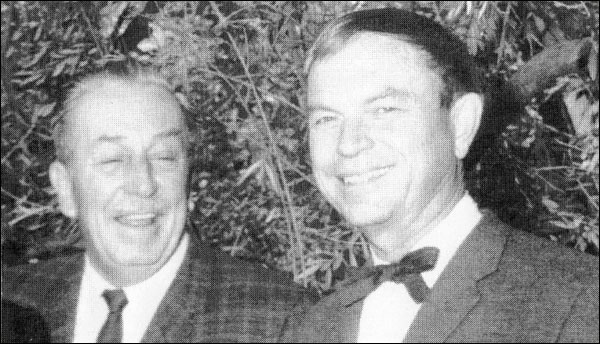
Suspended Animation #314
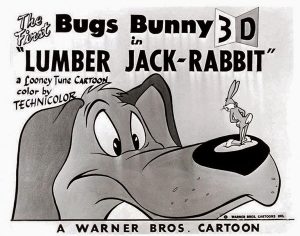 When Warners briefly shut down its animation studio in 1953, director Chuck Jones went to work at the Disney Studios from July 13th, 1953, to November 13th, 1953.
When Warners briefly shut down its animation studio in 1953, director Chuck Jones went to work at the Disney Studios from July 13th, 1953, to November 13th, 1953.
The 3-D fad was proving popular and studio head Jack Warner decided to suspend all operations at the studio until it was decided if 3-D was the new direction for Hollywood feature films. All divisions at the company were told to suspend operations – everyone was put on leave, including the Cartoon Department (Friz Freleng and a handful of animation employees were spared with instructions to simply finish post production on a handful of incomplete subjects). Chuck Jones’ Lumber Jack-Rabbit was reshot for 3-D during this time and released the following year.
Jones was still under contract but decided to leave since no work was going to be done. He went to the Disney Studio where he was teamed with Ward Kimball to do work on Sleeping Beauty (1959).
As Kimball recalled, “I was just filling in between animation assignments. Walt had said, ‘Why don’t you go up and work on that sequence about the fairies changing colors’ and so forth. I was a fill-in. That happened a lot. I could leave the animation department and go and work on things of that sort, as a story man.
“All we [Chuck and Ward] did was sit around. I think every time, Eyvind (Earle) came up there, Joe Rinaldi, he and myself and Chuck Jones would get into these gabfests. Chuck had just discovered one-upmanship, and he ran into his nemesis with Bill Peet, because Bill Peet wouldn’t say much, but he was funny, and he could cut you to the quick.
“I started enjoying it, because I knew Chuck always wants to dominate the conversation, and Peet would cut his legs out from under him. Maybe that’s one reason he didn’t want to work there.”
As Disney producer Harry Tytle recalled, “Chuck’s brief stint with Disney in 1953 lasted only four months. During this short time, he earned no screen credits and, to the best of my recollection, made no significant contributions. Chuck has joked that the only job he wanted at Disney’s was already filled by Walt.
“He and Walt were used to the being the biggest fishes in their respective ponds. Chuck was a talented innovator but at Disney’s, as far as Walt was concerned, he was the new kid on the block and had to prove himself. This must have been a new and confusing role for Chuck.”
Fortunately, like Kimball, Tytle kept a detailed journal diary of his time at Disney and thanks to those notations a much fuller insight exists into Jones’ brief Disney experience.
Here are some excerpts from Tytle’s diary that I got to view and I wish the Kimball diaries were available in order to get another perspective:
June 10, 1953: This morning I was called into Walt’s office. Chuck Jones at Warner Bros had called Walt applying for a job. Walt asked my opinion of Jones. I said, to the best of my knowledge, he was a very nice fellow personally and considered to be on of the best directors on the outside. That he had done a lot of work for Warner Brothers across the years.
June 15, 1953: At 9 a.m. we met with Chuck Jones. Chuck explained how he had been working, stating he would like to work here. That he was not under contract anymore and could be available to us in a month, after winding up what he had to do at Warners and taking a vacation.
Walt knew what Chuck’s salary was. Peterson had gotten it for him and we had discussed it—so Walt pulled a cutie by saying he didn’t know ‘what your salary is, Chuck, but whatever it is, you must be worth it to Warners, and I will pay you the same.’ Chuck, I believe, expected more because he mentioned something about working under scale.
 The one thing that I thought Chuck failed in was he made clear to those in the meeting that he dominated his unit, especially story, which is un-Disney. It was felt that Chuck would get a clearance and it is possible that we could pick him up in six weeks, and he is going to work through Hal Adelquist.
The one thing that I thought Chuck failed in was he made clear to those in the meeting that he dominated his unit, especially story, which is un-Disney. It was felt that Chuck would get a clearance and it is possible that we could pick him up in six weeks, and he is going to work through Hal Adelquist.
June 23, 1953: Chuck Jones knows he is definitely coming in on the 13th. Although I do not think we should bring it up, he will probably ask about contract and we have no decision or directive as to Walt’s thinking. Incidentally, Chuck was in today and Hal told me he didn’t make out so well in his meeting with Walt.
He had a sheet of typewritten suggestions he tried to hold forth, and Walt was not interested. Chuck is going to have to learn to work with Walt. I presume that he feels he was called in for his creative thinking and ability. He will soon have to learn that Walt sets the direction, the pace, and even the topic of conversation. Hal stated that Walt made the remark to him later on that Chuck had a lot to learn.
September 15, 1953: I heard today, through Hal, that Chuck who was just put on Sleeping Beauty, and had never directed for Disney’s, requests the same salary as the other feature directors. Hal is going to present this demand to Walt this morning. It will be very interesting to see the outcome.
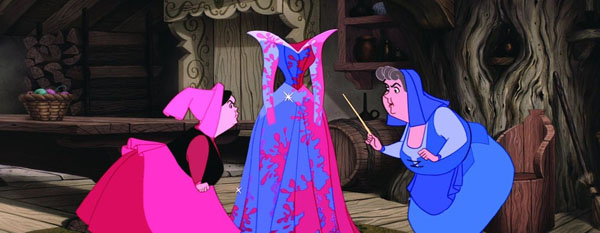
A scene from “Sleeping Beauty”
September 16, 1953: [Walt] got into the Chuck Jones’ deal and asked me if I knew that Chuck has asked for an increase, which he indicated he would have no part of. I told him that I was very interested in what his reaction would be, that I for one, feel as Walt does, Chuck should prove himself here first.
Walt got a little upset because I understand he feels maybe this increase was instigated by Ward [Kimball]. He made it clear again that nobody is indispensable, Ward included. It was the organization that counted.
November 5, 1953: Chuck hit Walt the second time, through Hal, for an increase. Supposedly, he has an offer from Sutherland for $500 and an offer to return to Warner Brothers. Walt’s remarks to Hal were ‘Have Chuck make up his mind as to what he wants to do. There is no increase until we find out Chuck’s ability—he has shown nothing to date’.
November 5, 1953 (later that day): Hal tells me further that Jones is going to see Walt and if things do not work out he plans to return to Warner Brothers who start up the first of the year.
November 13, 1953: The Chuck Jones situation came to a head today….The story is that he left for New York this evening, starts work at Warner Brothers again the first of the year at a $40 increase, making the new salary $400. I had heard in the morning that he was telling people that ‘the place here worked at too slow a pace’….”
Despite the fact that his brief tenure at Disney was not satisfying for either himself or Walt Disney, Jones still held the Disney Studios and Walt in the highest regard for the rest of his life. Jones said, “Disney was not a good animator, he didn’t draw well at all, but he was always a great idea man, and a good writer.”
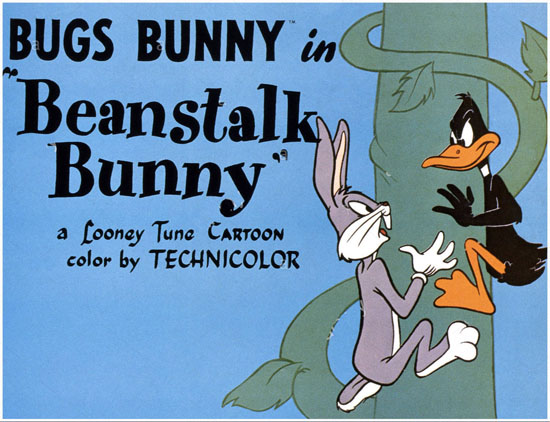
A cartoon made after Chuck’s return to Warner Bros.


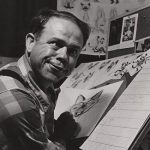
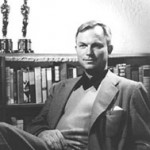
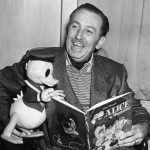
 Jim Korkis is an internationally respected animation historian who in recent years has devoted his attention to the many worlds of Disney. He was a columnist for a variety of animation magazines. With his former writing partner, John Cawley, he authored several animation related books including The Encyclopedia of Cartoon Superstars, How to Create Animation, Cartoon Confidential and Get Animated’s Animation Art Buyer’s Guide. He taught animation classes at the Disney Institute in Florida as well as instructing classes on acting and animation history for Disney Feature Animation: Florida.
Jim Korkis is an internationally respected animation historian who in recent years has devoted his attention to the many worlds of Disney. He was a columnist for a variety of animation magazines. With his former writing partner, John Cawley, he authored several animation related books including The Encyclopedia of Cartoon Superstars, How to Create Animation, Cartoon Confidential and Get Animated’s Animation Art Buyer’s Guide. He taught animation classes at the Disney Institute in Florida as well as instructing classes on acting and animation history for Disney Feature Animation: Florida.




















































Jones’s four months at Disney ended on Friday the 13th. I guess it was a lucky day for everybody.
What’s the story with Ward Kimball’s diaries? Where are they, and why can’t they be accessed?
Yeah, I wonder if Amid Amidi accessed them in the making of his Kimball bio, Full Steam Ahead (…which, by the way, I can’t find on Amazon). Did that ever make it into print?
Amidi did have access to Kimball’s diaries… and no, his book was never published.
God I hope it does someday, maybe a self-publish.
Since, that book hasn’t been published, there’s Todd James Pierce’s “The Life and Times of Ward Kimball: Maverick of Disney”. Although, this book has no pictures other than the cover.
Has anyone ever written a whole book on the ’53 shutdown? I feel like there are so many stories to tell, like the ones in this article.
On a side note, it still amazes me that there were so many finished cartoons in the queue that WB was still releasing pre-shutdown cartoons as late as mid-1955.
It’s great to get this detailed timeline from Tytle’s diary! Reading the entertaining Kimball quotes, I remembered I’d seen them before, and it’s fun to be reminded. But Tytla’s more objective details are really illuminating. Thanks!
Jones was too much his own person to fit in at Disney. That, by the way, is a compliment. No Disney animation director produced anything near to rivaling the best of Chuck Jones at Warner Brothers. The truth is that Tex Avery, Bob Clampett, Friz Freleng, Chuck Jones, Robert McKimson, Carl W. Stalling et all, were not only too much their own person to fit in at Disney they are also the kind of talents the industry does not want today.
The bosses at Warners’ – first Leon Schlesinger, then Eddie Seltzer – were very hands-off; as long as the cartoons were doing well and were made on time and under budget, they didn’t much care what the animators did. This allowed individualistic directors like Jones, Clampett, Avery and Freleng to flourish. At Disney’s, however, everything had to go through Walt, and in 1953 he had a lot of irons on the fire. No wonder Jones got impatient and left.
Very interesting. I’d always wondered how Jones’ time at Disney went.
Thanks for posting, Jim.
There really wasn’t much possibility of Mr. Jones becoming a tenth “old man,” was there?
The layoff allowed the WB cartoon studio’s then ridiculously long backlog of shorts to get slightly caught up, and let McKimson eventually rebuild his unit after his team was fired earlier in the year.
“Walt’s remarks to Hal were ‘Have Chuck make up his mind as to what he wants to do. There is no increase until we find out Chuck’s ability—he has shown nothing to date’.”
Bu-bu-bu-bu-bu-but what about everything Chuck had already achieved over at Warner Bros.!!??
I believe years ago I read a Michael Barrier interview with Chuck Jones in which he says the most about working at DIsney I had ever read. Nothing here is really contradictory, just from the Disney personnel perspective. Jones pretty much had said he got tired of waiting for Walt’s approval on everything (No wonder they felt so lost when Walt died). Think about it, it must have been frustrating, from running his own unit for almost 15 years to having to prove himself in the caste system that was Disney studio then.